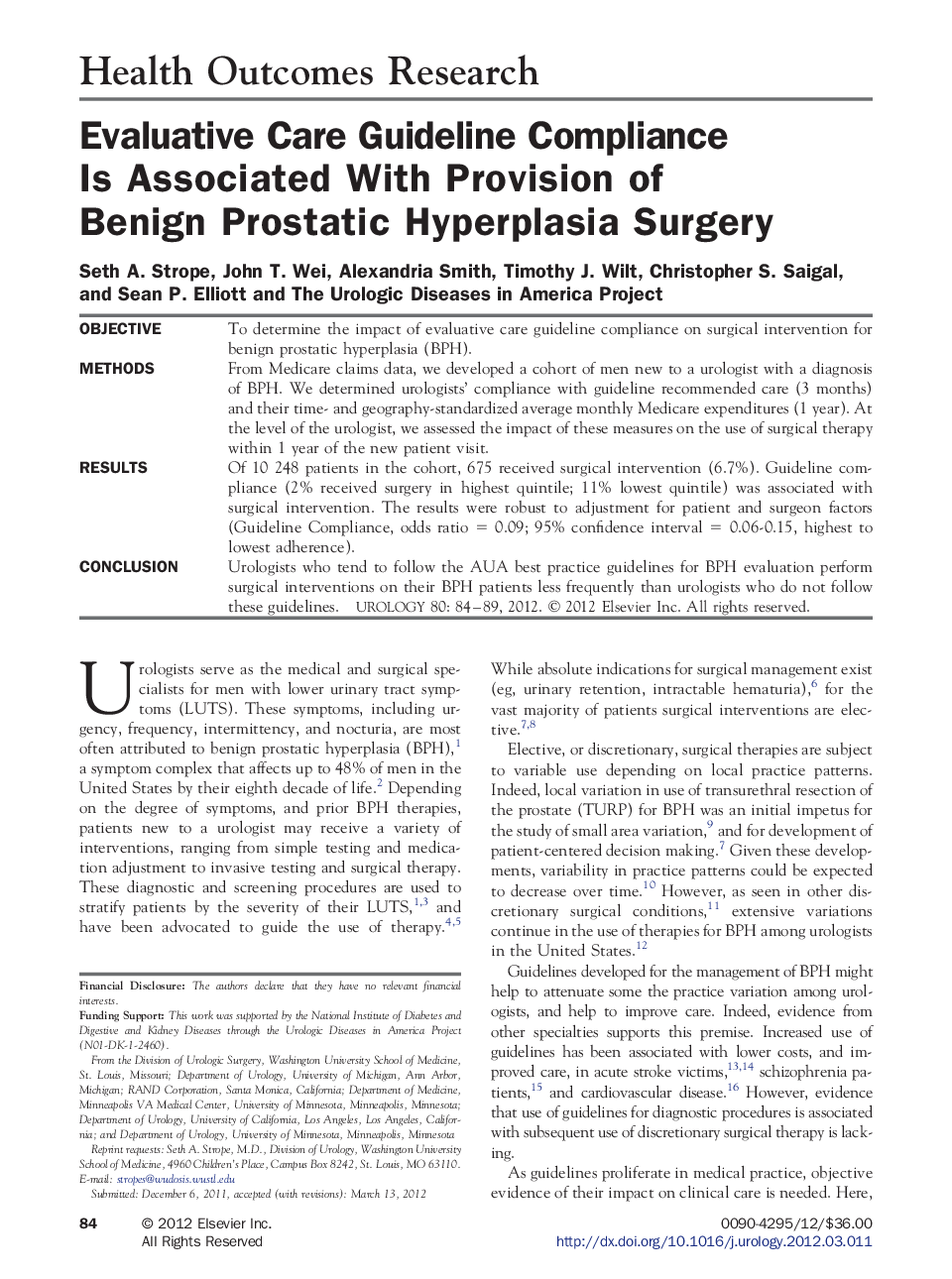| Article ID | Journal | Published Year | Pages | File Type |
|---|---|---|---|---|
| 3899961 | Urology | 2012 | 6 Pages |
ObjectiveTo determine the impact of evaluative care guideline compliance on surgical intervention for benign prostatic hyperplasia (BPH).MethodsFrom Medicare claims data, we developed a cohort of men new to a urologist with a diagnosis of BPH. We determined urologists' compliance with guideline recommended care (3 months) and their time- and geography-standardized average monthly Medicare expenditures (1 year). At the level of the urologist, we assessed the impact of these measures on the use of surgical therapy within 1 year of the new patient visit.ResultsOf 10 248 patients in the cohort, 675 received surgical intervention (6.7%). Guideline compliance (2% received surgery in highest quintile; 11% lowest quintile) was associated with surgical intervention. The results were robust to adjustment for patient and surgeon factors (Guideline Compliance, odds ratio = 0.09; 95% confidence interval = 0.06-0.15, highest to lowest adherence).ConclusionUrologists who tend to follow the AUA best practice guidelines for BPH evaluation perform surgical interventions on their BPH patients less frequently than urologists who do not follow these guidelines.
